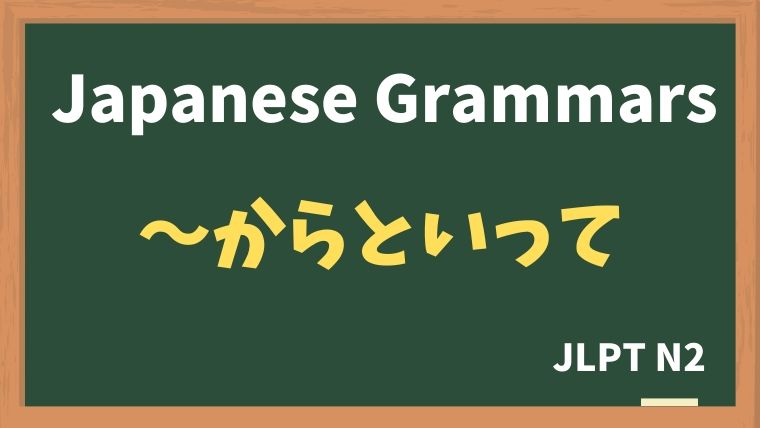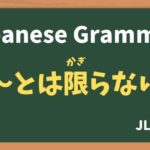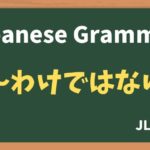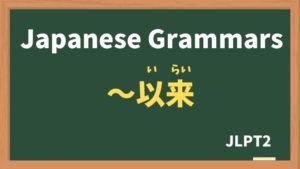
Explanation:〜からといって
fa-check-circleMeaning
"〜という理由があっても"
"just because / ~ is not a good enough reason"
Used to introduce a condition or reason, often followed by a statement that refutes or limits the expectation that the given reason should lead to a particular outcome. It translates to "just because" in English and is frequently used to challenge assumptions or to clarify that one thing doesn’t automatically imply another.
fa-check-circleForm
V(plain form)+ からといって
イA(plain form) + からといって
ナA(plain form) + からといって
N(plain form) + からといって
fa-check-circlePoints
- Refuting Assumptions: "〜からといって" is often used to deny or limit a commonly held expectation or assumption.
- Contrasting Expectations: It contrasts a reason with an unexpected or opposing outcome, highlighting that the reason doesn’t necessarily justify or lead to the expected result.
- Followed by a Negative Clause: It is often followed by phrases such as "〜わけではない," "〜とは限らない," or other expressions that negate or restrict the conclusion.
fa-check-circleJLPT Level
N2
Sample sentenes
日本に住んでいるからといって、日本語が上手に話せるとは限らない。
Just because you live in Japan doesn't mean you can speak Japanese well.
留学したからといって、みんな日本語がペラペラになるとは限らない。
Just because you studied abroad doesn't mean everyone becomes fluent in Japanese.
日本語の先生だからといって、全ての漢字を知っているわけではない。
Just because someone is a Japanese teacher doesn't mean they know all the kanji.
有名な大学を出たからといって、いい会社に就職できるとは限らない。
Just because you graduated from a famous university doesn't mean you'll get a good job.
JLPT N1に合格したからといって、日本語が上手に話せるとは限らない。
Just because you passed JLPT N1 doesn't mean you can speak Japanese well.
暑いからといって、毎日エアコンばかり使っていると、体に悪いよ。
Even though it's hot, using the air conditioner every day can be bad for your health.
頑張ったからといって、必ず成功するとは限らない。
Just because you worked hard doesn’t mean you’ll definitely succeed.
Vocabulary
| Japanese |
English | |
| 留学 | りゅうがく | study abroad |
| 全て | すべて | all |
| 就職する | しゅうしょくする | to get a full time job |
Similar Sentence Patterns








